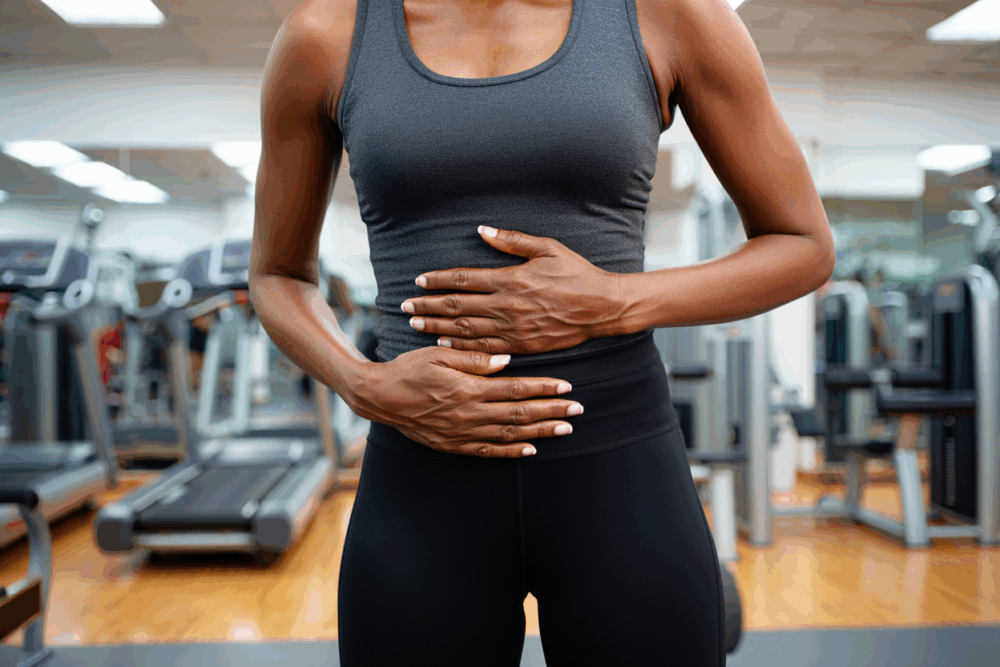In the last year and a half, I have entered the full-on menopause stage of life. Previously, I was in perimenopause for about eight years. Between peri and full-on menopause, to date, I have had the following symptoms:
- Lower back pain
- Joint pain
- Cramping
- Pelvic pain
- Nerve pain in my legs
- Extreme exhaustion
- Hot flashes
- Very thirsty
- Insomnia
- Sleep apnea (I snore so loud it wakes me up, and I feel like I need to catch my breath)
- Light headedness
- Periods of depression and anxiety
- Forgetful
- Sore breasts
- Decreased libido
Furthermore, about a year ago, I was having debilitating pain and was not able to walk. Initially, my doctors thought it was coming from bone pain in my hip. However, after a thorough pelvic ultrasound and an MRI, they found that the pain was coming from overworked and strained pelvic floor muscles, thus not a bone problem.
According to Medical News Today, they report the following thirty-four symptoms can occur during menopause:
1. Hot flashes
2. Night sweats
3. Irregular periods
4. Mood changes
5. Breast soreness
6. Decreased libido
7. Vaginal dryness
8. Headaches
9. Recurring UTIs
10. Burning mouth
11. Changes in taste
12. Fatigue
Fatigue can be a distressing and sometimes debilitating menopause symptom.
13. Acne
14. Other digestive changes
15. Joint pain
16. Muscle tension and aches
17. Electric shock sensations
Some people can experience sensations that resemble electric shocks during perimenopause and menopause. It is not clear what causes this, but it may be the result of changing hormone levels in the nervous system.
18. Itchiness
19. Sleep disturbance
20. Difficulty concentrating
21. Memory lapses
22. Thinning hair
23. Brittle nails
24. Weight gain
25. Stress incontinence
26. Dizzy spells
27. Allergies
Some females report new or worsening allergy symptoms when they experience menopause. This happens because, during menopause, females can have spikes in histamine. Histamine is the chemical that causes allergic reactions.
28. Osteoporosis
29. Irregular heartbeat
30. Tinnitus
31. Irritability
32. Depression
33. Anxiety
34. Panic disorder,”.
Good to know my symptoms are normal for women like me going through menopause- I can also relate to a few more of these and add them to my list.
*Note: All content within this article is meant for informational purposes only and is in no way a replacement for professional medical or psychological advice or support. Seek immediate and appropriate care from a healthcare professional should you or a trusted loved one deem it necessary.
What is the best thing for menopausal insomnia?
Not being able to sleep is a real nuisance not only to my love of sleeping but also to my need to sleep in order to heal from all the chronic pain I am dealing with, which is a direct result of the decrease in hormones. As my mom would say, “I can’t win for losing!”
Seriously, though, insomnia is affecting my quality of life and my ability to perform at my best for work. For example, last night I did not sleep – instead, I tossed and turned all night in pain. Pain in my lower back, in my hips, and in my pelvis, which caused the nerve pain in my legs. I remember at one point looking out my window to see that the sun was rising, which meant it was around 5:30 am, and I was not going to be able to go into the office.
Unfortunately, around 8 am, I had to message my boss that I would not be in today because of my distressed night and lack of sleep. I continued to toss and turn in pain, finally falling asleep at 10 am, only to wake up at Noon. As you can see, I merely got two hours of sleep, and it was definitely not good sleep.
Upon awakening, I called my gynecologist to inform them that I no longer wished to “tough it out”; I needed an appointment as soon as possible, and I would like to explore hormone replacement therapy. Menopause is kicking my butt!
As far as the best thing for menopause insomnia, the National Institute on Aging suggests, “To improve your sleep through the menopausal transition and beyond:
Follow a regular sleep schedule. Go to sleep and get up at the same time each day.
Avoid napping in the late afternoon or evening if you can. It may keep you awake at night.
Develop a bedtime routine. Some people read a book, listen to soothing music, or soak in a warm bath.
Try not to watch television or use your computer or mobile device in the bedroom. The light from these devices may make it difficult for you to fall asleep.
Keep your bedroom at a comfortable temperature, not too hot or too cold, and as quiet as possible.
Exercise at regular times each day but not close to bedtime.
Avoid eating large meals close to bedtime.
Stay away from caffeine (found in many coffees, teas, and chocolate) late in the day.
Remember, alcohol won’t help you sleep. Even small amounts make it harder to stay asleep,”.
Sometimes I exercise too late, but overall, I am adhering to all of the above-suggested items. Let’s see what else we can do or not do.
How to counteract menopause symptoms?
In addition to what is suggested above, I am implementing the following into my daily routine:
- Jacuzzi bath for fifteen minutes – turn off jets – add Epsom salt, and soak for at least twenty more minutes
- Meditation and prayer during a bath soak with calming music
- Work with a therapist to help me identify and manage triggers that may worsen my symptoms
- Acupuncture
- Weight training three days a week, including the stationary bike for low-impact cardio
- Massage therapy (using a hydromassage bed at the gym after each workout)
- Supplement and vitamin therapy
- Eat a healthy diet
- Probiotics for women
- Once daily vitamin for women
- Phytoestrogen supplement
- Ashwagandha supplement
- Melatonin
- Calcium, magnesium, and zinc vitamin combo
- Vitamin C
- Vitamin D3
- Calcium
Additionally, to ease menopause symptoms, the NHS (National Health Service UK) recommends that, “You can:
- wear light clothing
- keep your bedroom cool at night
- take a cool shower, use a fan or have a cold drink
- try to reduce your stress level
- avoid or reduce potential triggers, such as spicy food, caffeine, hot drinks, smoking and alcohol
- exercise regularly
- lose weight if you’re overweight,”.
Does menopause cause back and pelvic pain?
In conclusion, while menopause can contribute to back and pelvic pain, adopting a healthy lifestyle and seeking appropriate medical care can significantly alleviate symptoms, ensuring a more comfortable and active life during this transition.





